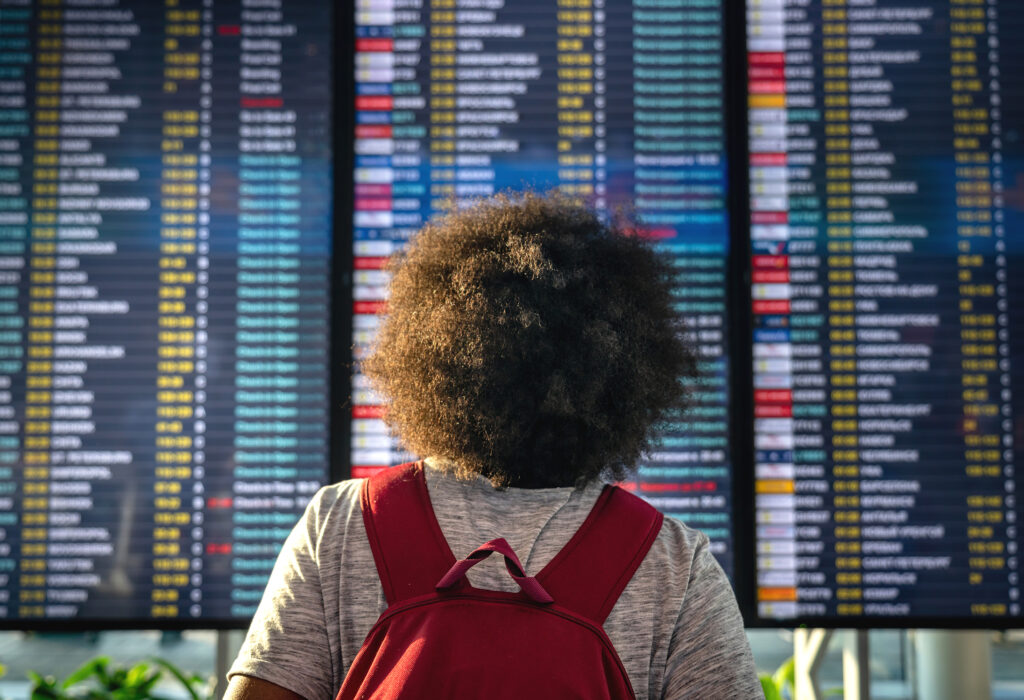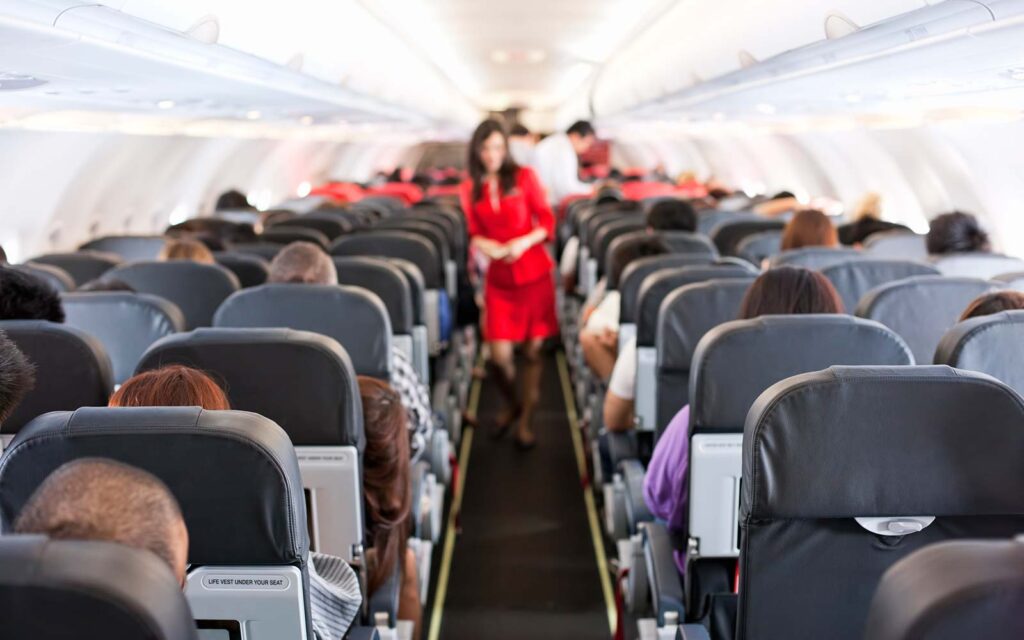
The Top 10 Summer Travel Nightmares You’ll Encounter (And How to Deal with Them)
This season is set to be a record-breaker. Here’s how to keep your cool.

Thomas Barwick/Getty Images
This article is part of our six-week, limited edition newsletter series, Last-Minute, Low-Stress Travel, which will give you the tips and trips to make all of your summer travels go smoothly. Travel editor Krista Simmons and other experts will walk you through everything from how to deal with common travel nightmares, how to save money on your next vacation, packing hacks, camping trip ideas, and more. Sign up here to get each installment straight to your inbox.
It’s been projected that this summer is going to be a big one for travel, with numbers climbing well above pre-pandemic levels. It’s estimated that 85% of Americans are planning on getting out of town this season, and given what an awful winter it was for air travel, it’s even more important to anticipate what you can control. (Vacation is all about escaping stress, after all.)
So, we’ve asked two of the travel industry’s leaders—Aida Mollenkamp, founder and travel planner at Salt & Wind Travel, and Lee Abbamonte, a travel expert who’s been to every country in the world—how to combat some of the worst travel conundrums you’ll come across, from queues at TSA to cancellations and delays. Here are their tips.

andresr/Getty Images
1. Cancellations and Delays
“First, accept that it’s rare for travel to go perfectly smooth, especially during high season. Also, remember you can only control so much,” Mollenkamp says. She suggests getting comprehensive travel insurance policies, which will cover delays and cancellations. It also helps to use an expert: “Have your travel planner, hotel concierge, or, if you have access, airline elite line help you out,” Mollenkamp recommends. And always allow for a buffer day. “Don’t book paid activities on the first day of your trip,” she adds. “That way you won’t lose out on even more money if you are delayed.”
2. Horrific TSA Lines
Both Mollenkamp and Abbamonte agree that flying during non-peak hours, while perhaps inconvenient, can help save headaches in the long run. “Fly at off-peak times like early in the morning or midweek to deal with less people,” says Abbamonte. “Check in online to save time and try to not check bags.”
3. Overcrowding
With numbers being at pre-pandemic levels, the pipe dream of an empty aisle on the plane is far from a reality. To find your moments of zen in the travel process, Mollenkamp suggests investing in lounge access, be it American Express Centurion Lounges or Priority Pass to ease the sting.

izusek/Getty Images
4. Crummy Seatmates
If you’re confronted with a shoeless seat banger, hope is not lost. Abbamonte suggests bringing a good pair of noise-canceling headphones, “and if they’re unruly, you can always ask a flight attendant to be reseated.”
5. Missing or Damaged Bags
“Mitigate this risk altogether by using a luggage shipping service like LuggageFree or ShipGo—a great option if you’re attending a wedding abroad, for example,” says Mollenkamp. “If you are checking luggage, use AirTags so you can keep track of where the bag is at all times. And, of course, always put a change of clothes in your carry-on to cover your bases.”

ljubaphoto/Getty Images
6. Forced Gate Check
There’s nothing worse than taking the time to adhere to TSA and airline regulations for packing a carry-on, then being told at the gate you have to check your bag. The best thing you can do according to Abbamonte is to “try to gain some type of status so that you can board first so you have overheard space.” Make sure not to over-pack and really read the fine print, otherwise they will make you hand it over.
7. Turbulence
Nobody likes turbulence, but it’s one of the realities of flying. Put simply, it’s a change in the air surrounding the aircraft caused either by speed, temperature, or direction of the airflow. “To reframe it, my business partner Kristen’s grandfather was a pilot and would tell her to think of turbulence like potholes—unexpected and unavoidable but generally not detrimental,” says Mollenkamp. “Know that you will almost always have turbulence on certain routes like, say, a Pacific crossing to Hawai’i or going into Las Vegas or Denver. You can carry some ginger chews or ginger tea to help settle your stomach.”

Getty Images
8. Subpar Ground Transportation
If you’re confronted with a situation like that of the abysmal LAX airport (where you have to travel to a special lot to catch an Uber, Lyft, or taxi), save yourself the stress. “There’s always an alternative, like black car service that can get you at the airport so you don’t have to deal with LAXit,” says Abbamonte. Though it may cost you, it’s worth the lack of stress in the grand scheme of things. And, instead of waiting for the trams at said airport, opt to walk to the Uber or Lyft pickup lines. Chances are you’ll arrive sooner, plus it’s a chance to stretch your legs after a long flight.
9. Traffic Jams
Traffic can be a buzzkill, especially on long weekends. “Travel outside of rush hour and on off-days to avoid gridlock,” says Mollenkamp. “Or, look for alternative transport like hopping the Amtrak Surfliner up the California coast rather than driving.”
10. Technical Difficulties
“Opt for add-ons like OnStar, WiFi, and roadside assistance for your rental car,” says Mollenkamp. “Also, be prepared with a spare tire, extra water, and flares if you’re going somewhere remote like Death Valley.”
We only recommend things we love. If you buy something through our site, we might earn a commission.
Read the Current Issue Here!
Get one year of Sunset—and all kinds of bonuses—for just $29.95. Subscribe now!
